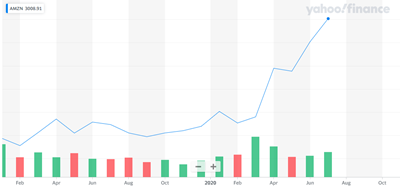
Even before the economic devastation caused by COVID-19, the Vermont economy was — by almost any measure — the worst-performing in the country. We missed the boat on the wage increases every other state has enjoyed from the recent national economic boom, our business costs are 12% above the national average and we have been ranked the 49th (2nd worst) state in which to start a business.
Our low unemployment rate belies the reality that young Vermonters cannot secure fulfilling, well-paid careers and find themselves stuck with entry-level jobs. Faced with no prospects in Vermont, many are forced to leave, taking a lifetime of tax revenue with them. The cost of housing, education and healthcare continues to far outpace wage increases and our taxes continue to climb skyward. We have a public pension crisis with unfunded liabilities to the tune of at least $4.5 billion (and rising) that Montpelier has roundly ignored, and we were the only state in the nation to suffer a bond rating downgrade in 2019.
To add insult to injury, our economic decline is detrimentally compounded by a demographic crisis. We are the second oldest state (after Maine) by median age and we have the lowest birth rate in the country at 1.44 — far lower than the 2.1 needed even for population replacement. To put it mildly, we are in dire straits.
It wasn't a pretty picture before COVID-19, and it's now immeasurably worse.
Vermont's small retail businesses have permanently lost market share to mega-corporations such as Amazon and Walmart, which were able to quickly upsize and take advantage of a dramatically increased online demand when in-person sales were discouraged or prohibited. These behemoths have collectively gained over $1 trillion (with a "t") in market capitalization due to COVID-19.

Thousands of Vermont's finest businesses will close their doors in 2020 for the last time. Many have already closed permanently or left for more business-friendly states — businesses that took the blood, sweat, tears and toil of Vermonters to build — often over many generations. Perhaps most poignant for Vermonters and in spite of well-intentioned injections of federal funny-money, we have permanently lost another 14 dairy farms already this year due to COVID-19. They will not return.
Our Legislative Majority Is Oblivious
Yet amidst all this calamity and chaos, destruction and demise, our tone-deaf legislature just voted themselves a pay raise, moved to ban mini shampoo bottles from Vermont hotels, passed the business-killing Global Warming Solutions Act and refused to delay or repeal its ill-conceived plastic-bag ban or absurd composting mandate — all during the worst pandemic and economic crisis of our time.
Montpelier — we demand that you stop the madness!
It is time to acknowledge that higher and higher taxation to fund an increasingly bloated state government neither stimulates the economy nor increases net revenues. It is neither prudent nor sustainable to continue down this path. All jobs, even government jobs, are ultimately funded by the profits generated by businesses — businesses owned by Vermonters who are increasingly struggling to make ends meet.
A New Direction for Vermont
An economic recovery for Vermont will require a completely new direction. An about-ship from our charted course. So what would it mean for Vermont to be business friendly, and what can we do within the next year to really turn things around?
-- We need to get our fundamentals right. The solution to our dwindling revenues is not to further increase taxes — we are already well past the hump of the Laffer curve and sliding down its leading edge. The only sustainable way to grow revenue is by being more business-friendly so that we attract more job-creating businesses. We need to cut taxes, reduce regulations, and abandon plans to yet further increase our minimum wage. What's good for business is good for consumers too. More business in Vermont means more well-paid jobs, more price competition for goods and services and a lower cost of living.
Vermont small businesses are not the enemy - they are the engine that will power us back to prosperity, if we only give them the chance.
-- We need to play to our strengths. Vermont’s innate strength — its inescapable allure — is its incredible natural beauty and abundance of natural resources. Our lakes, mountains, streams, forests, trails and small farms cannot be replicated anywhere, for any price. A strong Vermont economy is one which embraces all these exceptional traits and uses them to our unique advantage. There is a vast untapped market in the “Vermont brand” that our state government can do a much better job at facilitating and promoting. Our tourism and hospitality industry has been decimated by the COVID pandemic. To prevent further decline of this important sector of our economy, we need to send the clear message to New England and beyond that we are fully open for business.
-- Vermont's thousands of small farms are struggling. What should arguably be Vermont's strongest sector is increasingly getting the short end of the stick. Farmers are routinely denigrated, unfairly blamed for pollution and then taxed into submission by an unfriendly government. Agriculture needs to regain its rightful position as a cornerstone of the Vermont economy. I fully support John Klar's excellent and well-thought Farming Manifesto to revitalize agriculture in Vermont. This is a "win-win-win" plan that plays to our strengths, increases real productivity and stimulates the thousands of ancillary businesses that provide support to our farmers. And it costs us nothing.
-- We need to embrace the "Gig economy". Vermont is the ideal destination for the 21st-century Gig-worker. We are currently passing on multi-billion dollar investment opportunities from innovative American companies like Apple, Microsoft, Google and Facebook that are all vying to build a 21st-century campus in New England. Imagine a beautiful new engineering/tech campus right here in the Green Mountain State. A world-class hub of technology education, training and a source of thousands of new well-paid jobs. And Gig-jobs are green jobs, so even our climate-warrior friends might crack a smile — many Gig-workers are able to routinely work from home, giving them far lower carbon and traffic footprints than your average Vermonter.
With some bold, fresh thinking from our legislature and new executive leadership we can still recover from Vermont's economic death-spiral. But we better do it soon.